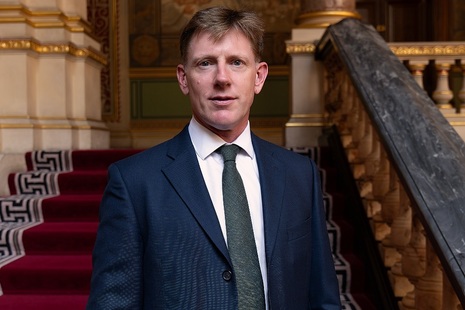British Embassy Khartoum
The British Embassy in Sudan maintains and develops relations between the UK and Sudan.
The British Embassy in Sudan is temporarily closed. British Office Sudan, based in Addis Ababa and Nairobi, was established after the British Embassy closed. It is working to support our diplomatic and humanitarian aims in Sudan. Our ability to provide in-person or in-country support to British nationals in Sudan is severely limited.
The British Embassy in Khartoum is not operational and has been affected by the on-going conflict in Sudan. The British Office Sudan anticipates an increased number of Unexploded Ordnances and Explosive Remnants of War being present in the Khartoum vicinity and as such, advise everyone to stay away from the Embassy location, until it is deemed safe by the FCDO.
If you’re travelling in Sudan, see our Sudan travel advice.
Getting help
If you cannot get the support, you need from local services, the Foreign, Commonwealth & Development Office (FCDO) can help British people abroad.
We prioritise emergencies and people who are vulnerable, for example, if someone’s:
- ill, injured, or involved in a crime
- with a British person who’s died
Situation in Sudan
Read FCDO travel advice for Sudan for the latest information, including on how to leave Sudan.
Our work in Sudan
Our work covers a range of issues including:
- making progress towards a ceasefire, an effective civilian-led political process and economic stability in Sudan
- ensuring that protection of civilians and international humanitarian law are respected, and that effective accountability mechanisms are in place
- working with international and national partners in providing life-saving humanitarian and protection assistance, increasing the resilience of vulnerable communities, and supporting a viable future for Sudan and its people
- promoting and building a long-term relationship between the UK and Sudan
London Sudan Conference 2025
The UK, alongside Germany, France, African Union and European Union, co-hosted the London Sudan Conference on 15 April 2025. The conference convened foreign ministers and high-level representatives from a range of international and regional partners. The focus was on progressing shared goals of ending the conflict and alleviating the suffering of the Sudanese people. A collective commitment to the sovereignty, unity, independence and territorial integrity of Sudan was reiterated.
Find out more on our UK and Sudan news page. We provide services to British nationals living in and visiting Sudan. You can access UK government services while in Sudan.
Get an emergency travel document
As the British Embassy Khartoum is closed, we are unable to issue emergency travel documents in Sudan.
You can apply online for an emergency travel document if you’re abroad and your passport has been lost or stolen, damaged or expired, and you can’t get a new or replacement passport in time to travel.
If the person needing the emergency travel document is under 16, a parent or guardian should apply on their behalf.
If you are travelling in more than 3 weeks, check if you can get a new or replacement passport in time to travel.
If you are not a British citizen or have not had a British passport before
If you’re not sure, check if you’re a British citizen.
If you’re not a British citizen but think you may be eligible, contact us to apply for an emergency travel document.
Other consular services
Notarial and documentary services
We do not currently offer any notarial services. See the full list of notarial and documentary services.
You must make an appointment to apply for services when the Embassy resumes normal business.
Legalisation services
Documents for use in Sudan that have stamped by the Sudanese MFA should require no further legalisation.
The UK does not require foreign documents to be legalised prior to use in the UK. Therefore, documents which have been stamped by the Sudanese MFA and are to be used in the UK do not need to be legalised by the British Embassy in Khartoum. As the British Embassy Khartoum is closed, we are unable to provide legalisation services.
If the document is to be used in another country, contact the legalisation authorities of the country where the document will be used for advice.
If you need a UK public document, such a birth, death, marriage and divorce certificates to be legalised for use in Sudan, follow the three-step process below.
Step 1: Contact the Legalisation Office, Milton Keynes, UK
To check if the document can be legalised and to apply online for this service, see getting document legalised.
Note that in order to get your document legalised you may need to get a copy certified, signed and dated by a UK public notary or solicitor. The Embassy does not provide this service. Locate a UK notary.
Step 2: Get document legalised by the Sudanese Embassy in London
Sudan Embassy,
3 Cleveland row,
St. James’SW1A 1DD
Opening hours 9am to 4.00pm (Monday to Friday)
Website: https://www.sudan-embassy.co.uk/consular-services
Step 3: For use in Sudan, the document(s) must be stamped by the Ministry of Foreign Affairs
See General Department of Consular Affairs, Department of Documentation.
Before undertaking these steps, you should contact the local authorities to confirm what is required.
The British Embassy in Sudan does not need to view or stamp these documents once these steps are complete.
Consular fees
We charge fees for some of our services when the Embassy is operating. See the full list of consular fees.
Our people
Richard Crowder

-
Magdalene Lagu
Deputy Head of Mission, Sudan -
Alice Motion
Development Director, Sudan
Contact us
British Embassy Khartoum (temporarily closed)
British Embassy
off Sharia Al Baladiya
Khartoum
PO Box No 801
Sudan
Public access to embassies, high commissions and consulates is by appointment only
-
To call us in an emergency or send us an online enquiry use our contact form: https://www.contact.service.csd.fcdo.gov.uk/posts/sudan/british-embassy-khartoum